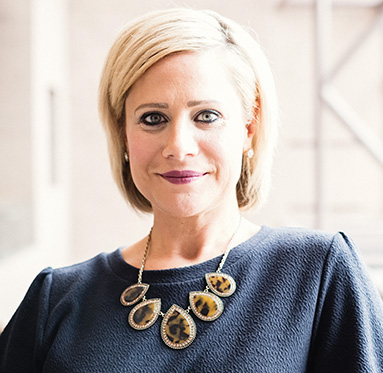February 11, 2019
OK, I admit it. I’m a true crime junkie. I belong to several true crime Facebook groups. I have gone to see some of my favorite podcasters live on tour. My bedtime routine consists of setting the TV sleep timer to Forensic Files. (Cue weird dreams.) I’m Lisa, and I’m a murderino.
As I was driving home the other day listening to the latest episode of Cold (highly recommend), I started to think about what makes me like (or dislike) a podcast, and I realized many of those same themes can be applied to how marketers approach their jobs.
Here are three things true crime podcasts have taught me about marketing:
1. TIGHTEN UP YOUR STORY.
All of my favorite true crime podcasts have definitive starts and ends. In some cases, that means I know at the outset I’ll learn everything there is to know in the span of 8 or 10 or 12 episodes. For others, each episode has a specific and obvious focus or purpose. When podcasts start to linger with no end in sight, or when the content of an episode is all over the place, I become confused (at best) or annoyed (at worst). As marketers, it’s important to know ahead of time what journey you want your customers to take, and to methodically map out what’s important to tell them and when. In podcasting terms, too many brands jump to the last episode (Hey! We launched a new product) or merge the focus of multiple episodes into one (hello, most e-mail newsletters), leaving customers and prospects confused about what really matters or what they should ultimately care about.
2. THE MESSENGER MATTERS.
Just because someone is a subject matter expert, that doesn’t mean they are a compelling storyteller. I’ve struggled through a few podcasts that feature a narrator who bumbles over words or has a weird speech affectation (uptalking is the worst!), even though they have spent months – sometimes years – studying the topic at hand. It takes away from the listening experience, as I end up focusing more on the way the message is being delivered than the message itself. Think about your organization. Who are your most captivating storytellers? Often, company spokespeople are identified by title, not skill. When it comes to the written word, that may be okay. But think about who is presenting on your behalf at industry conferences, working your trade show booth or conducting interviews with the media. My guess is there are probably at least a few instances where the message is being diluted by ineffective delivery. My advice is to take advantage of your organization’s natural talent, which may mean thinking outside the traditional norm when identifying company storytellers. It may mean taking a quirky behind-the-scenes researcher or scientist and creating a venue for them to flourish and connect with your customers, such as a video series or – dare I say – even a podcast.
3. WORD OF MOUTH REIGNS.
I most often discover new podcasts when they are recommended in one of the true crime Facebook groups I belong to. (The same goes for podcasts that are generally panned in those same Facebook groups, which I conversely stay away from.) In the age of social media, it’s easier than ever to become an ambassador (or detractor) for a podcast – or brand. How can marketers leverage this to improve their businesses? Conduct an audit of what people are saying about your brand or product on social media. Modernize the traditional “customer testimonial” model with a more socially-savvy approach. Then, complement that free WOM publicity with some paid support – in the same way new podcasts buy advertising spots on established ones in an effort to earn new listeners.
No matter your business, there are plenty of marketing lessons to be learned from the increasingly popular true crime podcast genre. If you’d like to talk about how to become a marketing murderino (or if you just want some recommendations of new shows to subscribe to), shoot me an email and let’s get the conversation going.


